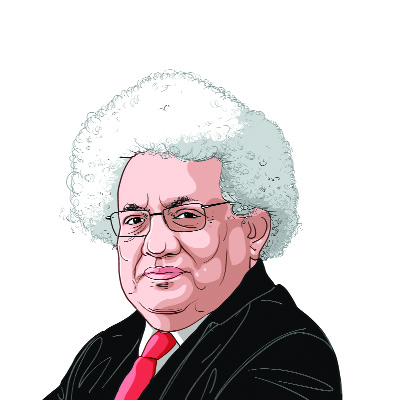Opinion The unknown Vivekananda
Having just celebrated Tagores 150th birth anniversary,we now have Swami Vivekanandas to celebrate.
Having just celebrated Tagores 150th birth anniversary,we now have Swami Vivekanandas to celebrate. Both were sons of Bengal but had very different visions of India. Vivekananda became a star after his appearance at the Chicago Congress of World Religions; perhaps the first global star India had in modern times. He was not only a brilliant speaker on Hinduism,but looked the part of a holy man. With his stunning good looks and voice,he also dressed in saffron,which has now become a uniform for swamis.
Tagore on the other hand was brought up in the Brahmo Samaj tradition. He too struck the English society of early 20th century as an Indian mystic bringing Asias message to the world. But his religion was universalist. Whats more is that he was not a saint but a superb novelist,short story writer,playwright,painter and a great musician. Yet,much of him is now forgotten. He is not read in the West or even India. Ask any Indian what they know of Tagore and they will mutter,Where the mind is without fear. No one reads Vivekananda much either. The edition of his Complete Works is badly printed and unedited. His disciples may worship him but they do not value him. They obviously do not read him. But Vivekananda is one of those figures of early modern India whom the secularists accept as much as the fans of Hindutva do. That is probably because neither of the camps read him. Yet,he is central to the story of modern India. Vivekananda is most interesting not when he is expounding the Gita,but when he is examining modern Indian society. Thus,he wrote to an Indian friend in 1894,…Religion has no business to formulate social laws and insist on the difference between beings…. Then again,Social laws were created by economic conditions under the sanction of religion. The terrible mistake of religion was to interfere in social matters. Vivekanandas nationalism was tough. As he writes in his The Mission of the Vedanta ,he has to tell his fellow Indians some harsh truths. …When one of our fellows is murdered or ill-treated by an Englishman,howls go up all over the country. Who is responsible? And the answer comes (from introspection to him) every time: Not the English; no,they are not responsible; it is we who are responsible for our misery and all our degradation…Our aristocratic ancestors went on treading the common masses of our country underfoot,till they become helpless,till under this torment the poor people nearly forget that they were humans.
When read with attention,Vivekananda turns out to have a complex view on religion. It is central to Indian life,the backbone,the bed-rock,the foundation upon which the national edifice has been built. But he also tells us that religion is an enemy of social reform. India is riddled with casteism as far as he is concerned and he wants to defy this. If the Brahman has more aptitude for learning on the ground of heredity than the Pariah,spend no more money on the Brahmins education but spend all on the Pariah. Give to the weak for there all the gift is needed. Vivekanadas anti-Brahaminism is strong. As he writes about the advent of the Muslims in India; It was because (the Brahmin) did not give it (the accumulate culture of the ages of which he was the trustee) to the people that the Mohammedan invasion was possible. It was because he did not open his treasury to the people from the beginning that for a thousand years we have been trodden under the heels of every one who chose to come to India. Alas,somewhere in the middle of the 20th century,political Hinduism became orthodox and abandoned the removal of casteism as a reform. We are still paying the price in the daily news of atrocities on young Dalit women and men. Swamis are for worshipping; not to be read or taken seriously.





